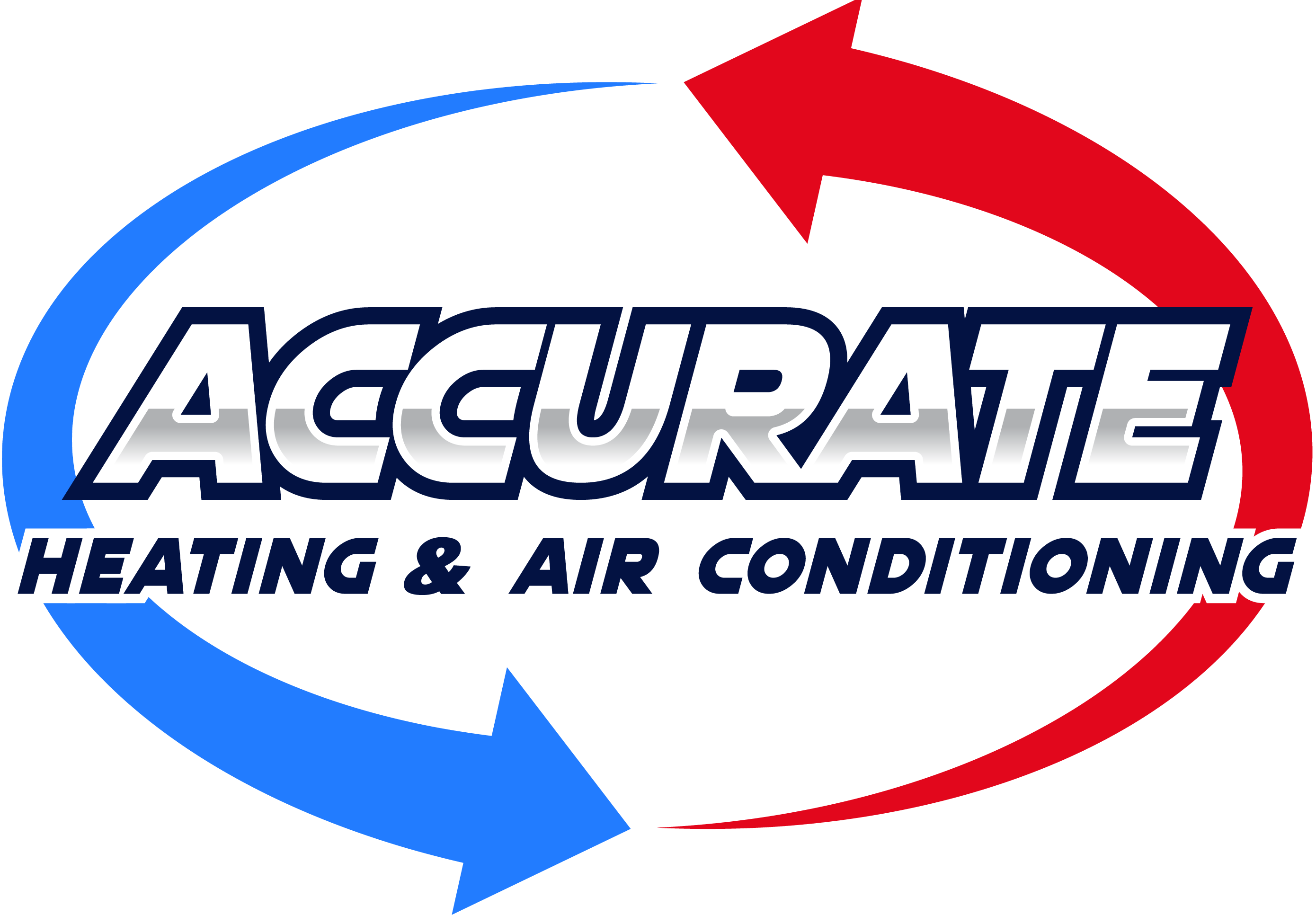While experts don’t fully understand the role HVAC systems may play in transmitting COVID-19 indoors, most agree that an HVAC system that exchanges outdoor air for indoor use can reduce the risk of spread.
At Accurate Heating & Air Conditioning, we pride ourselves on improving the comfort and efficiency of your home.
Below is a list of frequently asked questions concerning COVID-19 and HVAC systems. If you have any other questions or concerns on how we can help keep your home’s air quality and temperature optimal, please call us at (707) 595-0420.
Is HVAC repair an essential service?
Yes, heating and cooling installation and service are essential and necessary to ensure public safety. Under shelter-in-place orders, indoor air quality, home comfort levels, and HVAC services are more critical than ever.
Should HVAC maintenance be postponed after the pandemic?
It is not necessary to suspend maintenance or postpone filter changes.
We recommend bi-annual maintenance to reduce energy consumption, maintain efficiency, and catch any potential failures early on. Our HVAC technicians take precautionary measures, including coming prepared with a mask, gloves, and booties to minimize exposure.
Should I clean my HVAC to help reduce transmission of COVID-19?
Cleaning the condenser coil, air ducts, and other areas of your system will provide you with clean air. Health professions do not have enough information to say if it will reduce the transmission of COVID-19, but regular maintenance and cleaning will improve your indoor air quality.
How can I increase ventilation at home to protect my family?
Ensuring proper ventilation with outside air is a standard best practice for improving indoor air quality. However, by itself, increasing ventilation is not enough to protect people from COVID-19.
When used along with other best practices recommended by the Centers for Disease Control and Prevention, increasing ventilation can be part of a plan to protect yourself and your family.
To increase ventilation in your home, you can:
- Open the windows or screened doors, if possible.
- Operate a window air conditioner that has an outdoor air intake or vent, with the vent open (some window air conditioners do not have outside air intakes).
- Open the outside air intake of the HVAC system, if yours has one (this is not common). Consult your HVAC manual or an HVAC professional for details.
- Operate a bathroom fan when the bathroom is in use and continuously, if possible.
Avoid these actions when outdoor air pollution is high or when it makes your home too cold, hot, or humid.
What kind of filter should I use in my home HVAC system?
Minimum Efficiency Reporting Values, or MERV, reports a filter’s ability to capture particles. Filters with ratings of MERV-13 or higher can trap smaller particles, including viruses.
Many home HVAC systems will have a MERV-8 filter installed as the default. Upgrading to a MERV-13 rated filter could improve the system’s efficacy in removing viruses from circulated air. When used along with other best practices recommended by the CDC, an upgraded filter can be part of your plan to protect yourself and your family.
Before making any changes to the air filter in an HVAC system, users should consult their HVAC manual or an HVAC professional.
Will running a window air conditioner help protect me from COVID-19?
Window air conditioners are used to cool specific indoor spaces, and some may help reduce airborne viruses if they have an outdoor air intake and/or a MERV-13 or better filter.
Note that AC units that have outdoor air intakes are not common. If your window air conditioner has an outdoor air intake and outdoor air is clean, then open the intake to increase ventilation with outdoor air, reducing any airborne virus.
Is ventilation important for indoor air quality when cleaning or sanitizing indoors?
When cleaning and disinfecting for COVID-19, ventilation is essential. Using EPA-registered cleaning and disinfecting products according to their label’s instructions is the best way to ensure that any indoor air pollution risks are reduced while still maintaining the effectiveness of the disinfecting product.
In particular, follow any label precautions that recommend wearing personal protective equipment, like gloves or eye protection, designed to protect the user from the product.
Will an air cleaner or air purifier help protect against COVID-19?
When used correctly, air purifiers can reduce airborne contaminants, including viruses in a home or confined space. However, by itself, a portable air cleaner is not enough to protect people from COVID-19.
When used along with other best practices recommended by the CDC, operating an air cleaner can be part of a plan to protect yourself and your family.
What can I do if someone in my home has COVID-19?
If a household member is infected, additional precautions are required to reduce the risk, including using a separate room as an isolation space. It is recommended to block off the HVAC system and bring in an exhaust fan to blow contaminated air out of the house, preventing virus particles from leaking out of the room.
If you need HVAC repairs, maintenance, or installation, get in touch with your local Sonoma County HVAC professionals today.

